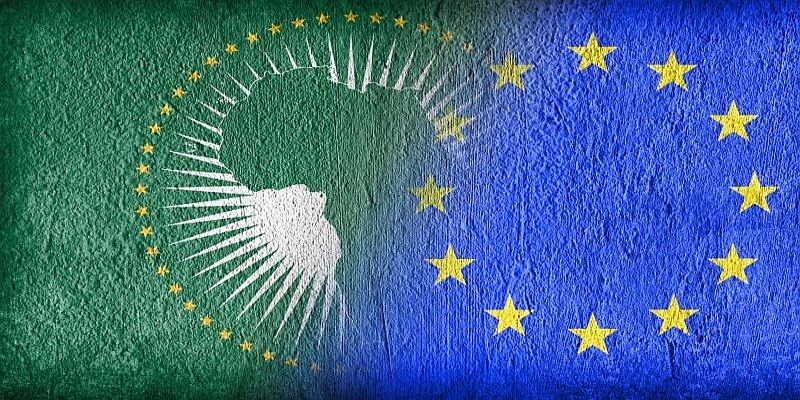Africa and Europe: Shared Future

Africa and Europe share a past – and we share a future. Strengthening our partnership will help us to address mutual concerns and challenges.
What does the future hold for young Europeans and young Africans today? What are their interests and aspirations? Having listened to some of the young voices here at this summit, it is striking how similar their hopes and concerns are: Freedom, a family of one’s own, a job, a brighter future, safety and security.
I am also struck by the similarity to my own experiences as a young man. I got my first job in the early 1970s. I was in my teens. I cleared brushwood out of a ditch close to my home village. It was hard work, but I enjoyed it. Because I knew that a job is the foundation on which to build a life of your own. Your own money. Your own choices. Your own future.
Our future lies in these dreams of young people. Our most important duty is to ensure that we create the opportunities that give our young people hope for the future.
Africa is losing many of its Some leave in search for a better life. Their dreams are often brutally exploited by smugglers, by human traffickers. Their lives are lost when they try to cross the Mediterranean in rickety boats. Promises are broken. The job does not exist when they arrive. Their work permit was fake. Instead, many are forced to stay illegally under very harsh conditions.
I was outraged and horrified by the recent footage of African migrants being sold as slaves. What this footage depicted must be condemned in the strongest possible terms. These reports must be thoroughly investigated without delay. We are encouraged by the action to be taken to free those now kept as slaves.
As a Member of the UN Security Council, Sweden adds its voice to the outright condemnation of the cruel and illegal practice of slavery. No young man or woman should be sold as a slave. Migration between countries should be safe, orderly and sustainable. This is our shared responsibility.
Good governance is about putting people first. Our obligation as leaders is to serve our people. Democracy, respect for human rights, and the rule of law are the foundations of all our societies. As is freedom of speech and freedom of the press because politics always benefits from intense scrutiny.
Providing space for civil society and strengthening the independence of civil society organisations are fundamental to building sustainable and democratic societies. Civil society is also the fabric that links people-to-people and will remain an indispensable stakeholder to build popular support for our continued partnership.
Good governance is inclusion. Commitment to gender equality, to reducing inequalities and to providing sexual and reproductive health and rights is essential for the empowerment of women and girls.
Allow me to emphasise three points: Firstly, we have agreed on strong common goals. Now we have to deliver. The Paris Agreement, the 2030 Agenda and the African Union’s Agenda 2063, including the African Governance Architecture, must be implemented. Everyone has to do their part. We need enhanced dialogue in a number of areas, for example electoral processes and democracy.
Secondly, we must fight corruption. Tax money belongs to the people. We need to further strengthen initiatives to fight tax evasion, illicit financial flows and corruption, otherwise these will undermine our societies and our economies.
Thirdly, investing in education is an investment in the future. A capable and skilled workforce is every country’s most important asset. Education, training and re-training is key to the diversification of economies as well as to maximizing investment. Let us aim for more cooperation on vocational training, in research, in science and in higher education.
What this is ultimately about, is turning the wealth of a country into prosperity and welfare for all of its people. There is no better policy against forced migration. There is no better cure for despair. This brings hope for the future. It makes young people stay. This is just good governance.
Let me conclude by quoting His Excellency Felix Houphouët-Boigny, the first President of Côte d’Ivoire: “Dialogue is the weapon of the strong, not the weak.”
By Stefan Löfven
Prime Minister of Sweden
